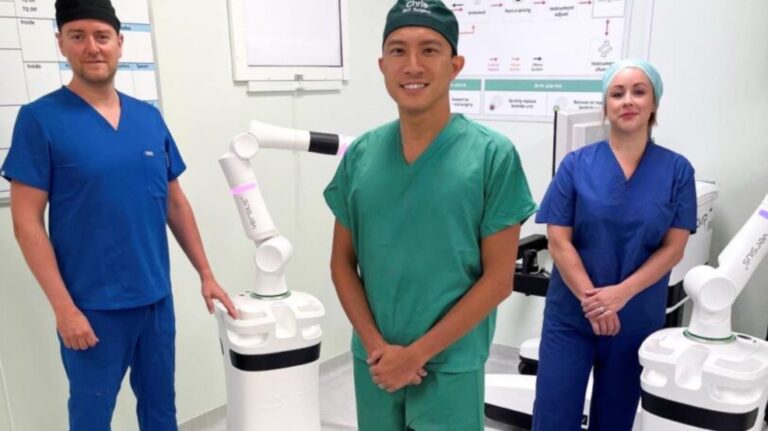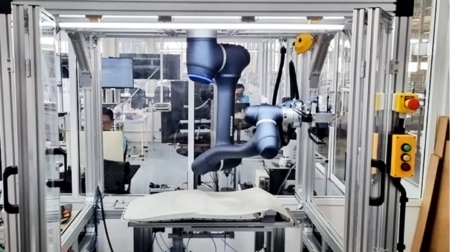Head and neck surgeons at Liverpool University Hospitals NHS Foundation Trust (LUHFT) has announced it will be entering the second phase of a trial to use surgical robots to treat patients with mouth and throat cancer.
The UK’s first Phase 2 trial for this technology will take place later this year and involve around 60 cancer patients at Aintree University Hospital.
The Versius Robot will be used to operate on head and neck cases, and is designed to enable surgeons to control robotic instruments from a console with a 3D HD view.
According to the trust, use of the console will mean increased capacity for procedures, as the robot can be easily moved between theatres and reduce the amount of time a surgeon needs to perform surgery.
Professor Terry Jones, director of Liverpool Head and Neck Centre and director of research and innovation for Liverpool University Hospitals NHS Foundation Trust, said: “The Versius Robot is an exciting innovation in healthcare and I am proud that our Trust is pioneering a trial to utilise this technology in Head and Neck surgery.
“I look forward to seeing how innovative devices, such as the Versius Robot, can improve the way surgery is performed.
“Not only will this advancement potentially benefit patients through enabling surgical procedures to be more efficient, but also allows surgeons to use more minimally invasive techniques, reducing patient recovery time and complications. This is also an example of how Research and Innovation is helping ease the pressures on our NHS.
“Developing new and effective ways to provide better healthcare is the key aim of our Research and Innovation Team at Liverpool University Hospitals, and we will continue to develop and support new ways of delivering the best patient care.”
Mr Jason Fleming, senior clinical lecturer of head and neck surgery, Liverpool Head & Neck Centre and honorary consultant surgeon at LUHFT, will lead the trial and perform the procedure using the robot from CMR Surgical.
Mr Fleming said: “Building on existing data, innovative technology such as Versius will help us develop new ways to increase the efficiency and precision of surgical procedures.
“Liverpool Head and Neck Centre has a long-standing international reputation for pioneering head and neck surgical techniques and, alongside my outstanding colleagues, I look forward to evaluating this technology for its potential use more widely, helping further improve the way surgery is performed to treat patients.”








